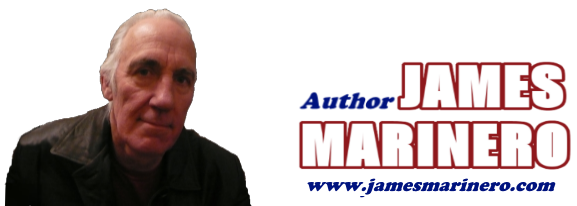Why Bother?
We could argue for ever about this, but if you are looking for the best thrillers – and I’m talking books here, not films – then this is my pick, across a range of sub-genres. Not all are selected for unremitting action – some are recommended for other reasons, such as new concepts or ‘novel’ style.
Spy Novels
Who is the master of this genre? For me, it has to be John Le Carré. He worked for the UK’s MI6 (Secret Intelligence Service) and knows the score, inside out. Things have changed since his day, and in my view his earlier works are best. My nomination in this category is ‘Tinker, Tailor, Soldier, Spy.
Alternatives would be ‘Restless’ by William Boyd, and ‘Spies of the Balkans’ by Alan Furst.
Horror
‘The Flesh House’ by Stuart MacBride. Realistic and suitably gruesome, with some great twists.
Other obvious candidates include books by Stephen King, but for me his best are more akin to Occult than to Horror.
Sci-Fi
‘Neuromancer’ by William Gibson. A debut novel, it won all three major SF prizes. Gibson was the author who coined the term ‘Cyberspace’. Ok, you say, why include it in your best thriller novels if it is SF? Well, the fact is that when it was written in 1984 (eerie coincidence with George Orwell?) it was mainstream SF, but since then there has been so much technical/ computer/ communications progress that it is, now, close to realisation.
Ghost Story
‘The Haunting of Hill House’ by Shirley Jackson. My review of this ‘best thrillers‘ choice is elsewhere on this site, so I shan’t repeat it here.
Action
Hard to choose here, but I’m plumping for ‘Day of the Jackal’ by Frederick Forsyth. I could opt for one of the Bourne books by Robert Ludlum, but I think that Forsyth’s book was seminal in the genre,even though the action is relatively low key. Ludlum has a writing style that doesn’t chime with me.
I can’t let this category go though, without a mention of the Jack Reacher novels by Lee Child. As is often the case with long-running novel franchises, the earlier ones are the best.
War Story
I’m not a great reader of this sub-genre, but one of the classics is ‘Where Eagles Dare’ by Alistair Maclean, though I do love ‘For Whom the Bell Tolls’ by Ernest Hemingway, set in the Spanish Civil War.
Occult
Stephen King’s works should feature near the top of the list, but to provide a bit of variety I’m suggesting a novel which I read many years ago as a teenager. Occult novels are, arguably, timeless. So, ‘The Devil Rides Out’ by Dennis Wheatley comes in here. Don’t read it alone late at night.
Some of Dean Koontz’s work is scary-modern, and he figures high on my list, preferably the earlier works.
Techno-Thrillers
Some would say that Tom Clancy established this genre – his ‘The Hunt for Red October’ is deeply ingrained on my memory. Others would say it was Craig Thomas (remember the Clint Eastwood film ‘Firefox’). This is a big arena now, with ex-Air Force jocks writing extensively in the genre. Thomas was a Welshman, so I’m opting for Firefox.
Political Thriller
This is a tough one. What is a political thriller exactly? Is it about superpower conflict, or a presidential election? The Watergate story would itself have made a great political thriller, but that’s a true story. I think Tom Clancy with one of his later ‘Jack Ryan’ books gets the nod here, and it’s going to be ‘Patriot Games’ for me. This could qualify as an action thriller too, and also verges on techno-thriller in many aspects.
Crime Thriller
I cut my teeth on Mickey Spillane, even before I became a teenager. Elmore Leonard too,and other cop classics.
Now I like to read James Lee Burke. His settings are superbly described, without being over-detailed. Try either of his writing streams – Dave Robicheaux (great evocation of New Orleans pre-Katrina, and later, post-Katrina in ‘Tin Roof Blowdown’), or Billy Bob Holland (‘Cimarron Rose’) in Texas, then moved to Missoula, Montana (‘Bitterroot’). I almost have a mental map of Missoula now, and pictures of the cottonwood trees along the river, and the fishing. Billy Bob has problems with a personal ‘haunting’, and that adds a fascinating dimension in a way that doesn’t require any disbelief suspension – it’s just there, and real.
Finally
I’ve listed nine sub-genres of thriller novels, and more than fifteen books when I set out to list ten. It’s tough – there are so many great novels out there. However, this is not a consolidation of others’ lists – it a list based on what I’ve read myself. Similarly, checking best seller lists only tells you what has sold well, which is hugely impacted by marketing effectiveness.
Looking back at these sub-genres of the best thrillers, I can see that spy novels (or at least, espionage, in some degree) cross several boundaries, into the political, war story and even action novel categories. Did my subconscious influence the choices? What are spy novels anyway? What makes a good one? I’m looking forward to exploring that in my next article.



